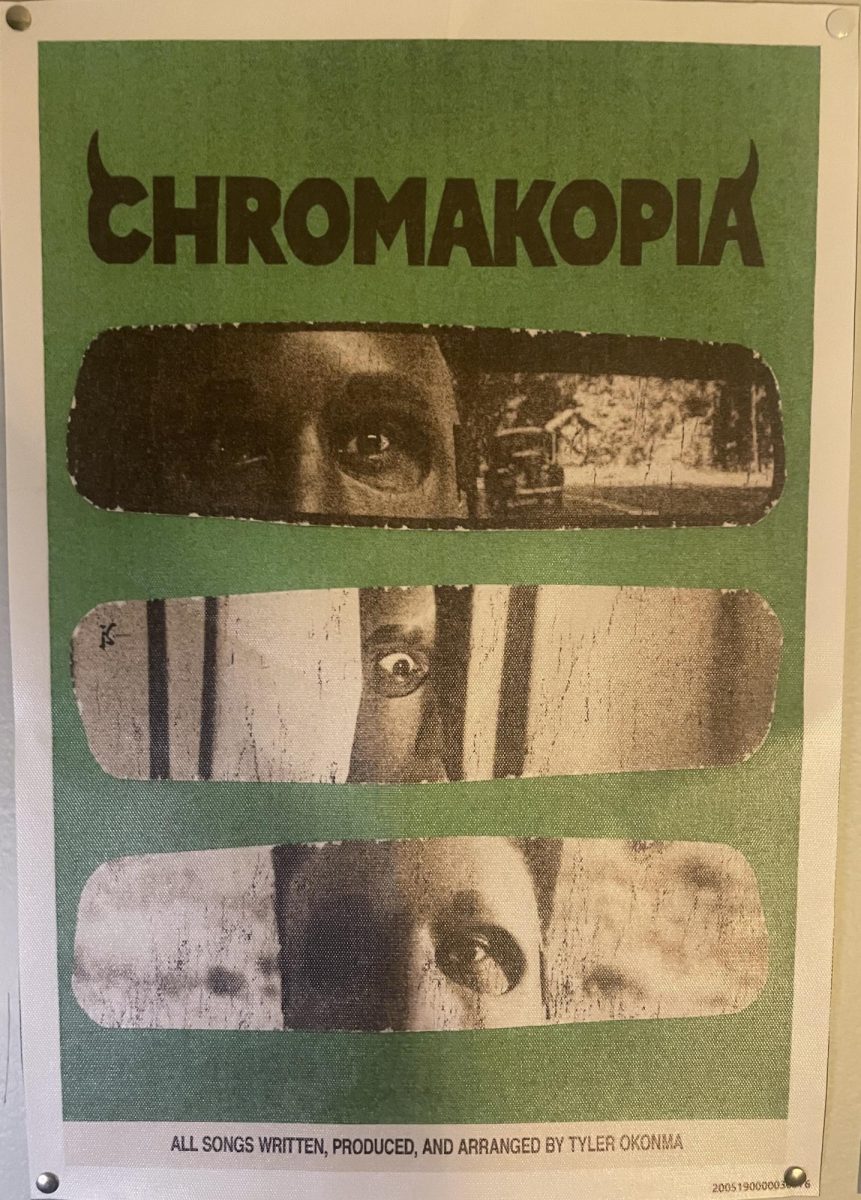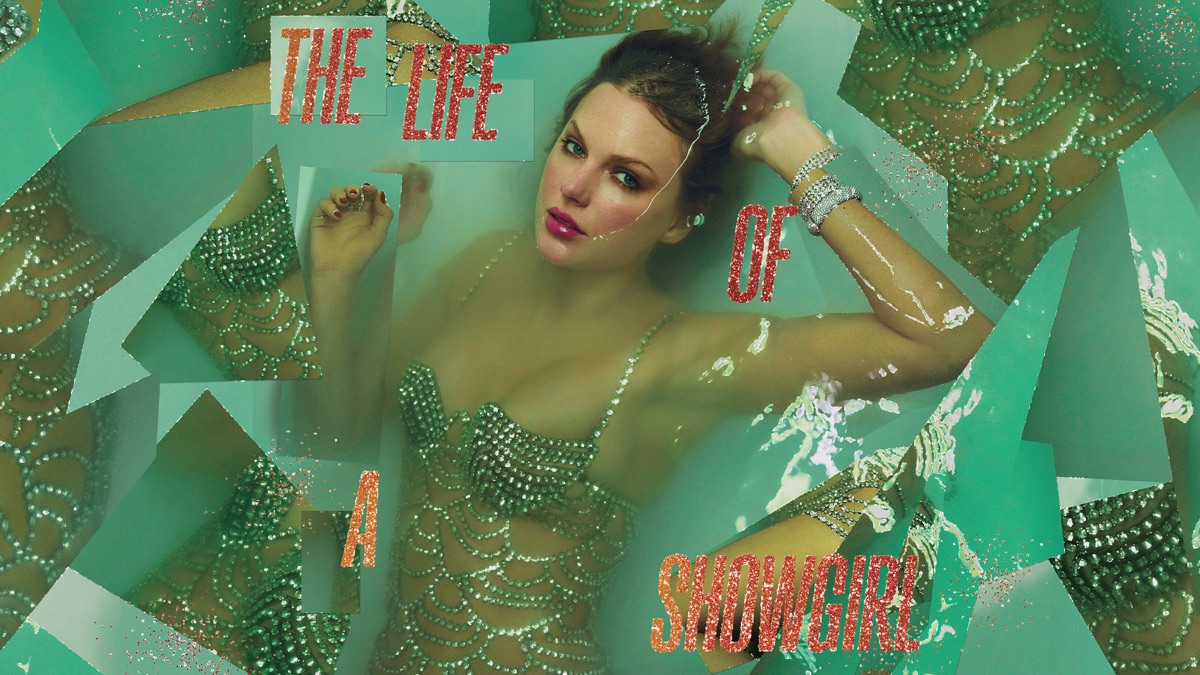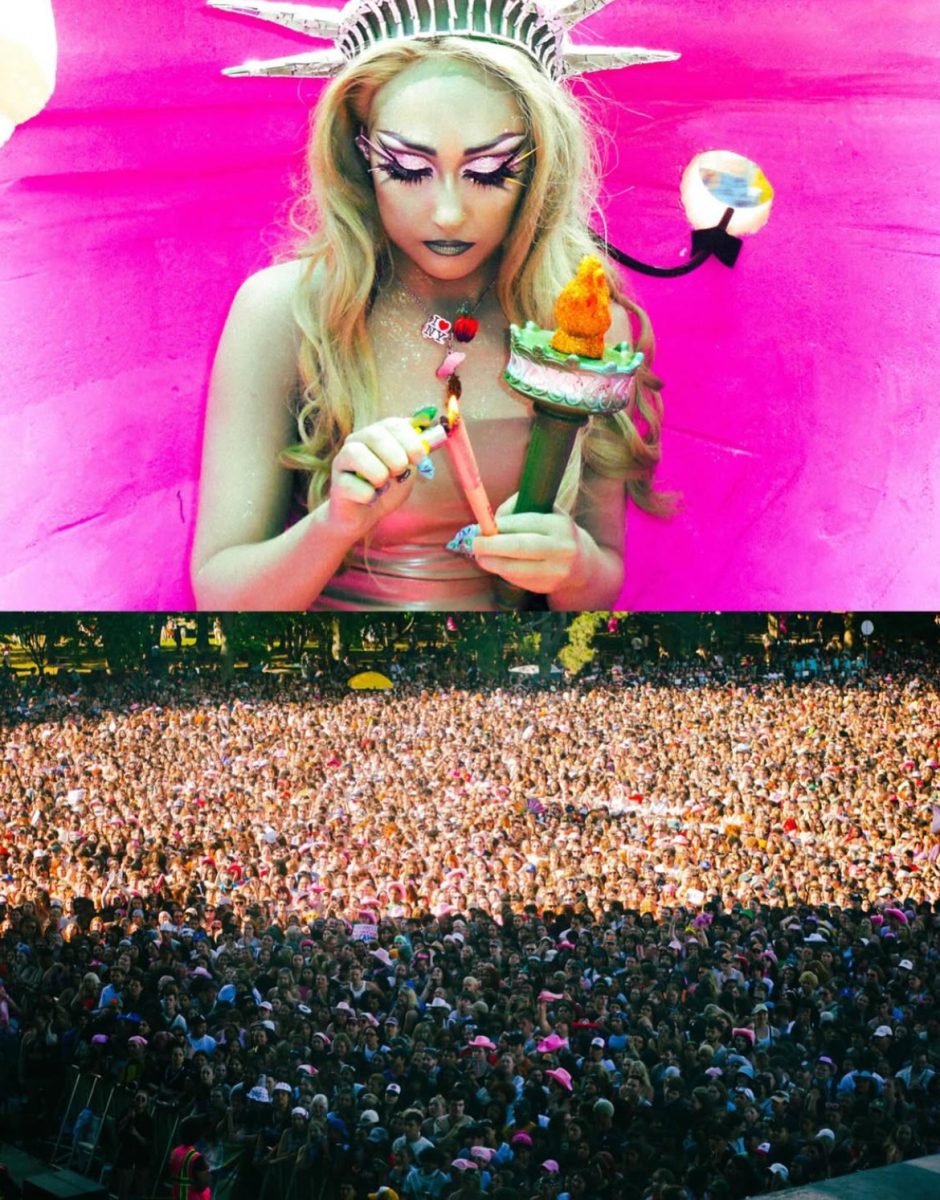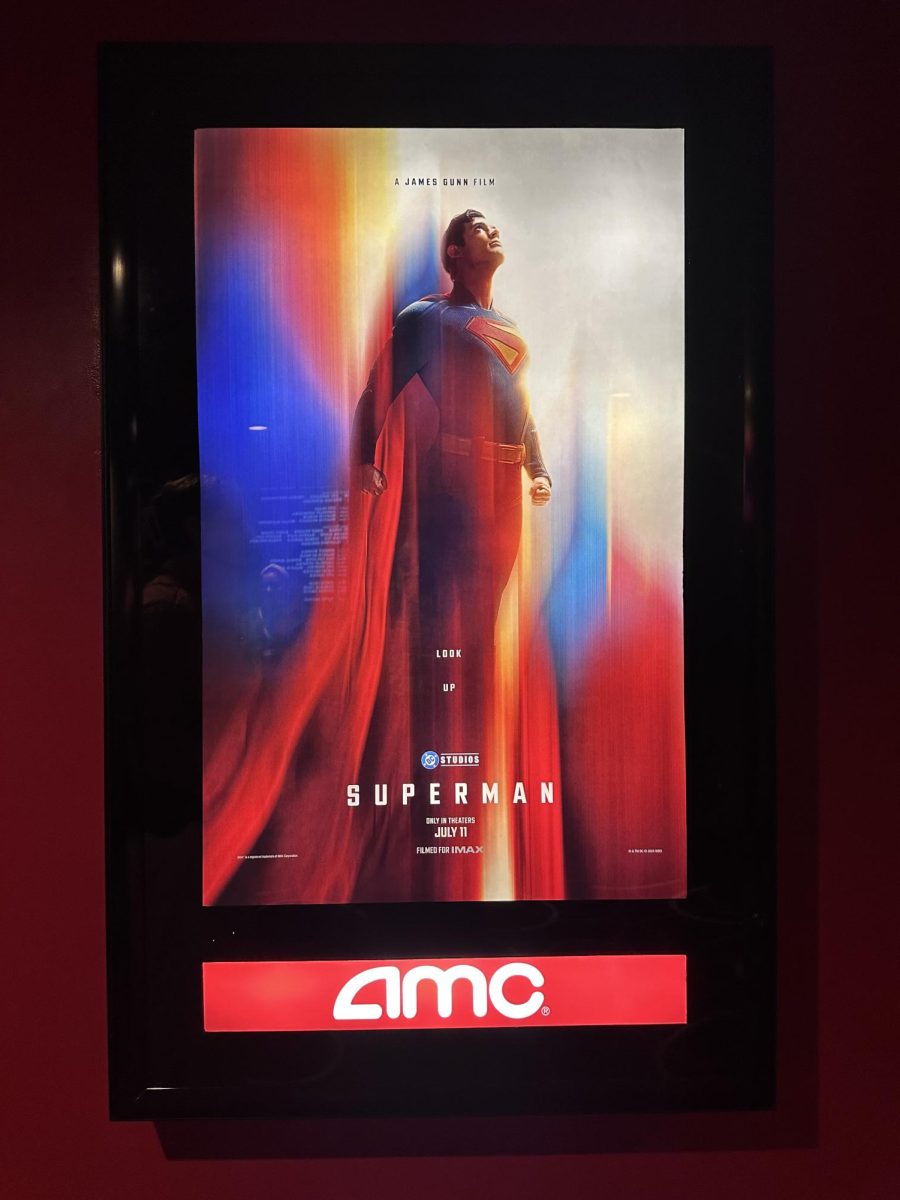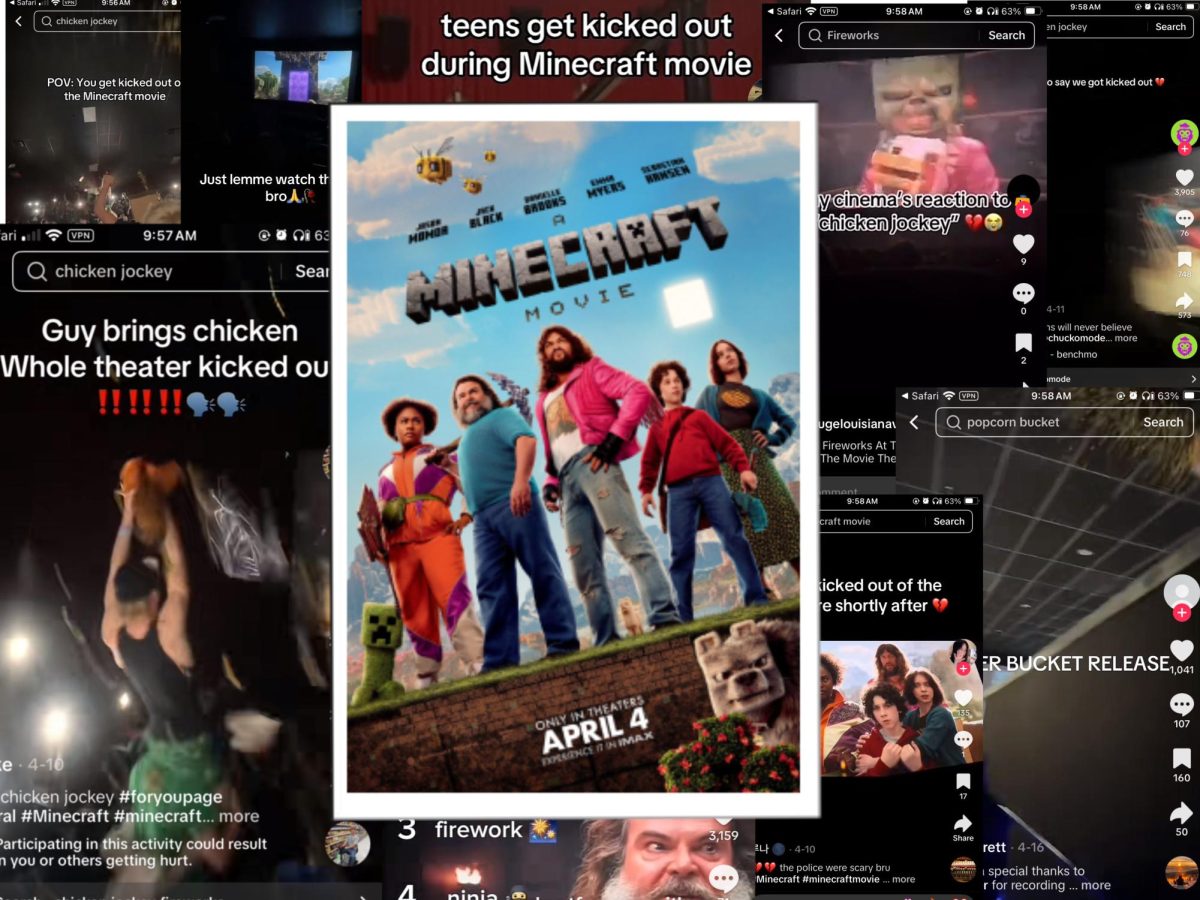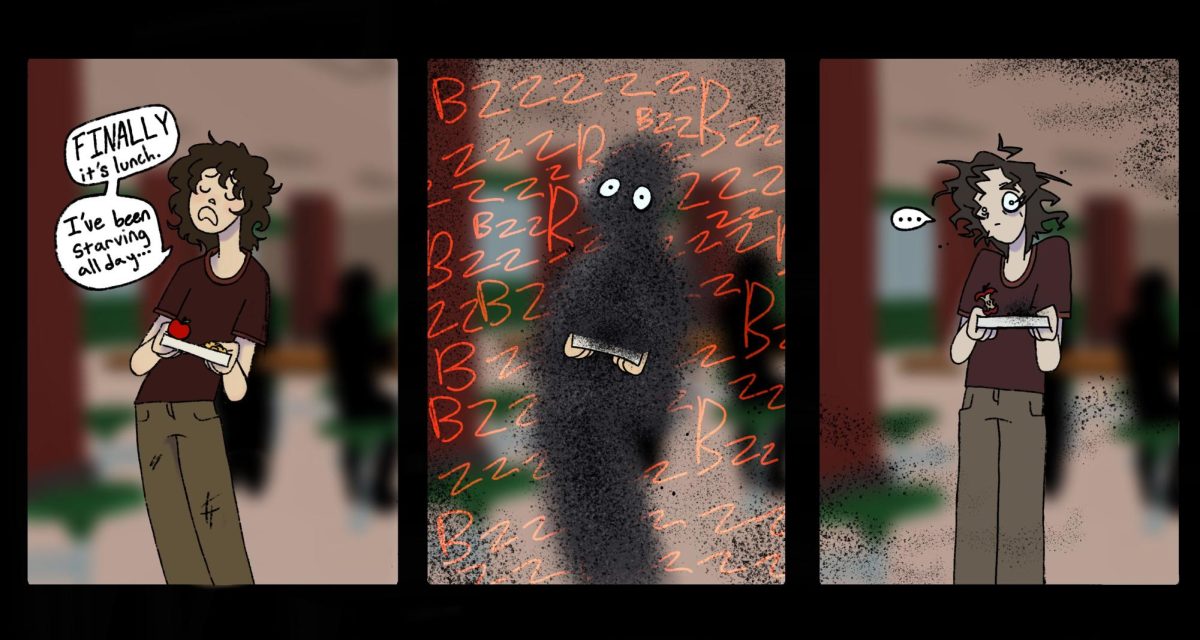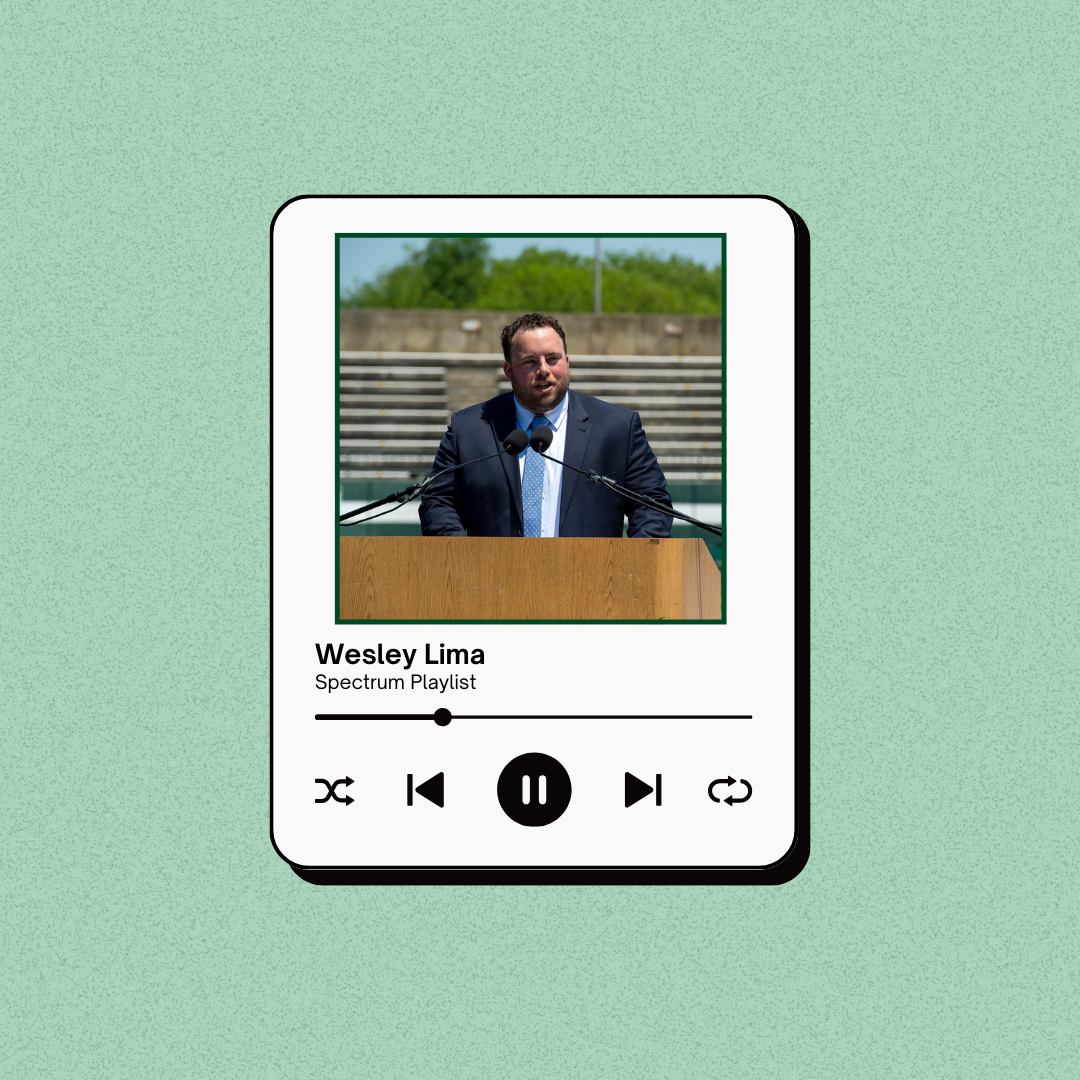This is the first part of Bryn Mesquitta’s analysis of “Chromokopia,” the newest album from Tyler, the Creator. Read the second part here.
Released on October 28, 2024, Tyler, the Creator’s ninth album Chromokopia has been sitting comfortably in the top spot on the Billboard 200 since its release.
From what I’ve seen, Chromokopia has had very mixed reviews. Some think that Tyler went above and beyond with this album, while others were less pleased. The Boar, a student newspaper from the University of Wariwck, calls it near perfect, while Cardinal & White, a student newspaper from Cardinal & White Prep, sees it as a signature Tyler album, “which is both good and bad depending on how you look at it.” By going deeper into each song, you may not find it more enjoyable to listen to, but you will have a better understanding of the album as a whole.
“St. Chroma (feat. Daniel Caesar)”
“St. Chroma” was partially released on October 16 as the teaser for the album. “St. Chroma” pulls you headfirst into the world of Chromokopia with little to no warning. Opening with marching footsteps, a sense of urgency is given to the listener, and Tyler’s whispered lyrics figuratively and literally pull the listener closer.
“St. Chroma” seems to reflect on the personal achievements of Tyler. The main theme of this song is individuality and authenticity, and Tyler couldn’t make this any less clear, with lyrics like “I’m gon’ make it out, promise I’m gon’ make it out” and “Don’t you ever stop bein’ who you are / And dimmin’ your light for none of these m—r’s.”
“St. Chroma” also gives us the general syntax of the album, which is narrated by Tyler’s mother, Bonita Smith. Smith’s narration is present in almost every song, and has to do with the topic of the song. Instead of a gentle step into the water, “St. Chroma” plunges you into the deep depths of Chomokopia.
“Rah Tah Tah”
If “St. Chroma” plunged you into the album, then “Rah Tah Tah” brought you straight to the middle of the ocean of Chromokopia.
Starting off strong, Tyler opens this song with a bold accusation, “She ain’t never met no one who talk like that.” The rest of the song is filled with witty and humorous flexes on Tyler’s fame and success, even stating he could never drive a Hellcat because they don’t cost enough. The chaotic sound of the song seamlessly plays into the next song.
“Noid”
“Noid” isn’t the first time Tyler has dedicated a song to fans and followers – and not in a very positive light. In “Colossus,” from his album WOLF, Tyler tells the story of an overbearing fan, a generalized example of a percentage of listeners. “Noid,” – short for paranoid – takes it one step further as Tyler explains his everyday fears about being famous. From buying a house (“I can’t even buy a home in private / Home invasions got my brothers dyin’”) to simply driving (“I loop around the block, eyes glued to the rearview / Rather double-back, then regret hearing ‘Pew-Pew’”), Tyler expands on how fame has affected every aspect of his life.
“Darling, I (ft. Teezo Touchdown)”
Tyler has a way of shaping unorthodox topics into simpler ideas that make sense to the masses, something he does well in this song. In “Darling, I,” Tyler explains his dislike for monogamous relationships. In a world where loyalty seems to be the first thing people look for in a partner, this song definitely hits some feelings that a lot of people aren’t familiar with.
Tyler’s distaste for this type of relationship is based on his preference to meet someone new often and learn about them. Lyrics like “Love ‘em all for different reasons at the same damn time,” and “Too many rules I’m too curious to try to be hiding things” explicitly state this.
“Hey Jane”
In “Hey Jane,” Tyler goes back and forth with a supposed “Jane” who is dealing with a potential pregnancy. Tyler gets all angles of the situation, verbalizing his and Jane’s pros and cons of the situation. In the song, Tyler sings both his and Jane’s perspectives, which are very similar. Tyler is scared to have responsibility for something as important as a child, but he leaves the decision up to Jane (“Look Jane, it’s your choice at the end of the day / Just know I’ll support either way, no pressure”). Jane is also scared to have a child, and she goes back and forth on whether to keep the child or not . By the end of the song, the only thing Jane is sure about is that she wants to stay friends with Tyler no matter the outcome (“T, no matter the decision today / I just want us to be cool either way, no pressure”).
Jane is commonly used as a generic name for an anonymous woman, and Tyler uses her to explain the different aspects of a very common situation without putting any specific person into the spotlight. “Hey Jane” also happens to be the name of a virtual reproductive clinic that was founded before Roe V. Wade. It’s up to debate whether Tyler knowingly named the song after this, but considering the topic, he probably had some idea of what he was doing.
“I Killed You” (ft. Childish Gambino?)
If you aren’t listening to this song intently, the message of this song will fly right by you. “I Killed You” is referring to the Westernization of curly hair. The specific term “kill” pertains to the harsh chemicals and procedures (or as the song goes, “I burnt you, I cut you, I filled you up with chemies / Forced you to relax”) that are used to straighten curls, like flat irons and relaxers. There are so many references to so many different instances of the history of curly hair and Black culture as a whole, and I urge you to research all of them if you’re interested, since nearly every line of this song has a historical significance.
(Childish Gambino’s vocals can be heard at the end of this song, and many lyrical websites cite him, yet he’s not officially listed on the song.)

